Issue #15 - Reckless or Revolutionary? The Future Hinges on Our Boldest Moves
Hey everyone!
I’m pleased to bring you this month’s newsletter – a deep dive into the challenges and opportunities that shape our world and our projects. This issue invites you to embrace boldness, from imperfect decision-making to long-term vision, as we navigate uncertainty in search of transformative success.
In it, you'll find reflections on imperfect decisions and extraordinary results, insights into global trends for 2025, explore industries poised to shape the global economy by 2040, and celebrate milestones including the recognition of the #1 AI Certification for Project Managers and the launch of a Portuguese course on how to lead innovation in AI.
Let's make 2025 the year of bold actions with significant impact. Together, we will build a future defined not by fear of the unknown, but by the courage to lead it.
Happy reading!
Ricardo
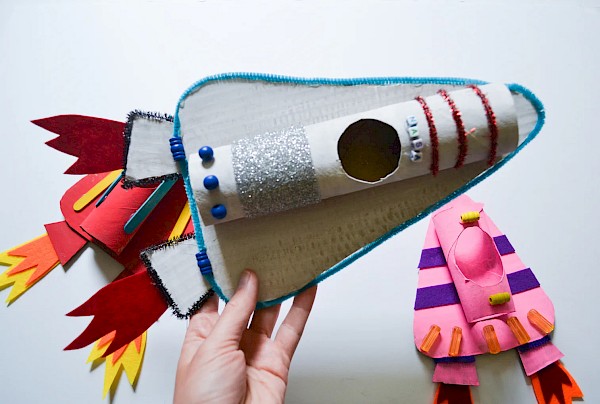
In This Issue
- Embracing Uncertainty for Project Success
- What Matters: 5 Years Later
- Staying Ahead in 2025: Insights on Global Trends and Project Success
- 3 Ways to Plan for the Long-Term Future
- The Emerging Arenas That Will Define the Global Economy by 2040
- AIPM Ranked #1 AI Certification for Project Managers
- Introducing my New LinkedIn Course in Portuguese: How to Keep Your Team on the Bleeding Edge of AI Innovation
Embracing Uncertainty for Success
First of all, I want to wish you all a happy 2025!
I hope this year brings you success, fulfillment, and clarity in all your endeavors.
January is always a moment to pause, reflect, and begin anew with fresh energy and purpose.
In this spirit, I wanted to revisit and expand on a conversation we began last month — the future.
Last December, I challenged myself to share my 10 Big Ideas for 2025, which you can find on my YouTube Channel:
This is a framework for thinking I use to reflect on the trends and forces that could reshape the way we work and create value.
These ideas ranged from emotional AI to global geopolitical challenges and from adaptive deadlines to the integration of digital twins and purpose-driven teams.
But my aim in sharing it wasn't to provide a perfect roadmap or make precise predictions. Instead, it was to offer a lens through which we can think critically and strategically about where we're heading.
Because, let's be honest, predicting the future with certainty is impossible. And that's okay. It is part of what it means to be human.
The challenge isn't to be perfect in our decisions but to embrace imperfection as we act boldly and deliberately.
This brings me back to an idea I hold close to — the relevance of making imperfect decisions.
You can hear my #5minpodcast called "How to Make and Live with Imperfect Decisions in Projects" about it here.
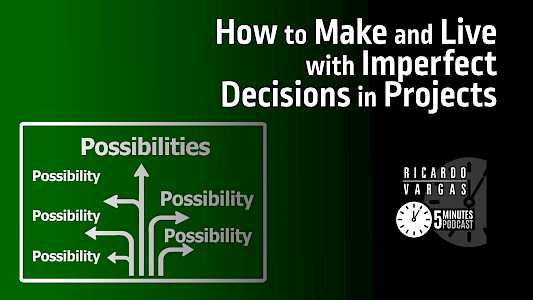
Figure 1 - How to Make and Live with Imperfect Decisions in Projects
Inspired by a thought-provoking Medium article, this philosophy underscores a truth we often overlook:
We rarely, if ever, have all the answers.
Waiting for perfect clarity often means waiting too long, leaving opportunities unexplored and challenges unresolved. This is called "paralysis" or "cognitive overload."
But how do we decide and move forward in these scenarios?
We should move forward with conviction, embracing the unknown and accepting the imperfections in our choices.
It's not about recklessness but rather a deliberate willingness to act even when the road ahead is uncertain, even when we do not have all the answers.
Take Daniel Rizea's story, for example, as shared in the article above. His decision to leave the security and prestige of Google for the uncertainty of a stealth startup is a striking example of navigating life's crossroads with courage.
He chose to optimize not for comfort or financial gain but for learning and growth. That choice meant confronting fears that are deeply human — the fear of failure, the fear of regret, and even the fear of how others might perceive his decision.
But what stands out most is his clarity of purpose. As he reflected, "At the end of our lives, we only have the stories we can tell."
This simple yet profound statement encapsulates the essence of imperfect decision-making:
It's not just about getting it right but about living a life full of stories, risks, and meaningful choices.
In my own experience, I've found that the act of deciding — even when the choice feels imperfect — is itself a source of clarity.
Often, the lessons we learn from committing to a decision, no matter the outcome, are more valuable than the elusive pursuit of perfection. Life rarely hands us a "right" answer… instead, it offers us opportunities to explore, adapt, and grow through the decisions we make.
As the Medium article reminds us, even when we lack all the facts or struggle to weigh the pros and cons, the most important step is simply to decide.
Paralysis by analysis can be just as costly as making the "wrong" choice.
The rapid evolution of artificial intelligence provides a timely parallel.
AI is reshaping industries and lives at a pace that leaves no room for perfect foresight.
Organizations and individuals alike must make imperfect decisions in the face of immense uncertainty — which AI tools to adopt, which processes to transform, and which risks to mitigate.
There's no clear map to follow, no universal guide to what works and what doesn't. But those who act, experiment, and iterate are the ones who will lead the way into this new frontier.
In the previous edition of this newsletter, I highlighted emotional AI as a transformative force — not just for its technical potential but for its ability to deepen human connection in an increasingly virtual world.
This is one of those areas where opinions diverge. Some argue that AI's influence is close to its plateau, while others, like myself, believe we've only scratched the surface of its potential.
The truth? No one knows for sure.
But what we can do is position ourselves to engage with these developments thoughtfully and intentionally.
Here's to a year of bold action, meaningful impact, and the courage to embrace uncertainty.
Thank you for being part of this journey, and let's make 2025 a year of transformative growth.
What Has Been on My Radar Recently?
What Matters: 5 Years Later
This discussion about uncertainty, the future, and the projects that will shape the future is very closely tied to a personal project I'm particularly proud of — the "What Matters Series" created in 2020 during the COVID-19 pandemic.
It was a deeply personal reflection on how we navigate life's challenges and choices, especially for those facing difficult circumstances or lacking support systems.
Despite not directly aligning with my professional work, this effort became a gift to my family, my daughters, the broader community, and myself. Myself because it gave me a sense of meaning during such a difficult time.
The series offered practical guidance on the principles shaping our careers and happiness. It was recorded and produced with my own resources and with no kind of sponsorship or commercial intent.
You can explore it through four 10-minute episodes on my YouTube Channel.
What Matters Episodes
In his new YouTube series, Ricardo takes the viewer on a journey through Portugal's countryside, sharing reflections from his 25 years of a global career in 4 episodes. The series is dedicated to young professionals looking to take their first steps in a professional career. Know more about the series at https://ricardo-vargas.com/special-projects/what-matters-series-conversations-i-wish-i-had-earlier-in-my-career/
Staying Ahead in 2025: Insights on Global Trends and Project Success
As we step into 2025, I've been reflecting on some fantastic reports I shared with you in my last newsletter and offer valuable insights into the trends shaping our world — especially regarding global politics, economics, and technology.
One of my go-to sources is The Economist's annual World Ahead report.
It explores the global trends and predictions for the year ahead, covering everything from geopolitics to AI advancements, climate change policies, and economic shifts.
It's a great way to comprehensively see what's coming.
I also came across an insightful article from The New York Times that looks at trends and predictions for 2025.
It breaks down what we can expect in areas like technology, culture, and the economy — helping us understand the forces shaping the year.
Both of these resources are must-reads if you want to stay ahead of the curve and gain a deeper understanding of the trends that will impact our future.
Also, I recently recorded a #5minpodcast where I share a powerful method I use to scan the environment for trends and risks — ones that can either protect or propel our projects forward.
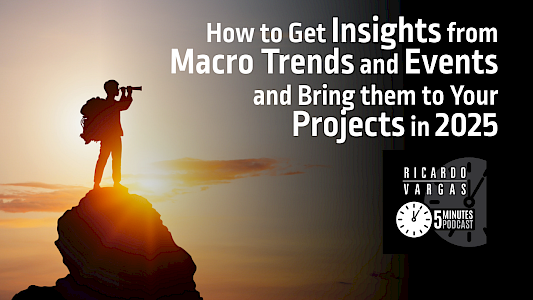
Figure 2 - How to Get Insights from Macro Trends and Events and Bring them to Your Projects in 2025
I've found that staying truly informed — about what's happening in the world around us — is one of the best habits for success.
It's all about how to turn macro trends and events into actionable insights for our projects.
You can listen to the episode here.
3 Ways to Plan for the Long-Term Future
I recently watched a TED Talk by Ari Wallach titled "3 Ways to Plan for the Very Long-Term," and it really made me reflect on how often we prioritize short-term goals, sometimes at the expense of our long-term future.
I even shared my thoughts about it on my LinkedIn profile.
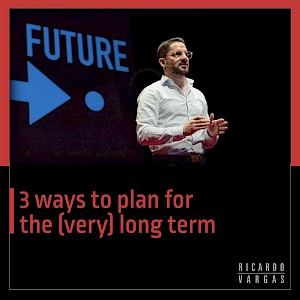
3 Ways to Plan for the Long-Term Future
Wallach presents some powerful ideas that challenge us to shift our thinking.
Rather than focusing on the next quarter or project, he urges us to think in terms of the long-term—what will impact generations to come.
One of his key takeaways is that we need to stop getting caught up in short-term gains and instead start considering how our actions today will influence the world for future generations. It's not just about benefiting ourselves; it's about creating value for those who will follow.
What I found particularly enlightening is Wallach's message that long-term thinking doesn't always require large, sweeping changes.
Sometimes, it's about taking small, deliberate steps that align with a bigger purpose. It's easy to feel overwhelmed by the thought of making a big impact, but he reminds us that small actions, when guided by a larger vision, can add up to significant change over time.
Another powerful point he makes is about the importance of considering how our actions affect others.
It's easy to become absorbed in our own needs and challenges, but by expanding our perspective and thinking about the greater good, we can start making decisions that contribute to a positive legacy for the future.
Wallach's perspective encourages us to think beyond our immediate circle and consider the broader impact of our choices.
Lastly, he suggests that integrating long-term thinking into our daily lives is more achievable than we often realize. It doesn't require a massive life overhaul—just small, intentional decisions that, over time, help build the future we want.
By making these choices each day, we're actively shaping the future we envision.
If you're someone who's interested in big ideas and creating meaningful change, I highly recommend checking out this talk. It's truly a game changer and offers practical advice for planning with the future in mind.
You can watch it here:
This talk is an excellent reminder that the future doesn't just happen to us—we have the power to shape it with the decisions we make today.
The Emerging Arenas That Will Define the Global Economy by 2040
On the same topic of our discussion this time, I read a thought-provoking McKinsey Global Institute article titled "The Next Big Arenas of Competition" that got me thinking about the future of industries.
The article discusses 18 future industries, or "arenas," that have the potential to reshape the global economy.
These sectors could generate anywhere between $29 and $48 trillion in revenue by 2040. For someone who's always looking for growth opportunities at the intersection of technology and strategy, this article felt like a preview of the future we're actively building.
What stood out to me was how these arenas aren't just defined by high growth but also by their dynamism and transformative nature.
The potential in these new arenas is enormous, and the window of opportunity for new entrants is still wide open. Anyone with the boldness to innovate could rise quickly.
Here's the link to the article if you're interested: The Next Big Arenas of Competition - McKinsey.
Quick Announcements
AIPM Ranked #1 AI Certification for Project Managers
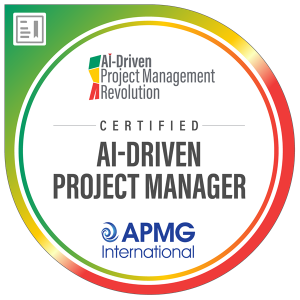
Our AI-Driven Project Manager Certification was awarded the best AI Certification for project managers by the Digital Project Manager!!
Antonio Nieto-Rodriguez and I are incredibly proud and excited to share this recognition with you all!
As we approach 250 credential holders, we are updating the exam and the prep material this month. Our aim is to update the content of the prep material and the credential study material with new trends. We aim to keep it constantly updated with the latest trends.
You can learn more about the certification here.
Introducing my New LinkedIn Course in Portuguese: How to Keep Your Team on the Bleeding Edge of AI Innovation
I have some exciting news to share with my Portuguese-speaking colleagues. I just released a new LinkedIn Learning Course: How to Keep Your Team on the Bleeding Edge of AI
What truly makes a company successful with artificial intelligence is not using the technology as a flashy application but as a strategic tool to generate business value and solve real-world problems.
In this course, I will guide the participant through a practical and efficient framework for leading sustainable business development with AI.
By the end, you will have learned to build the three essential pillars:
- People: Empower your team to leverage the potential of AI.
- Processes: Structure workflows that efficiently integrate AI.
- Technology: Choose and utilize the right tools to deliver tangible results.
The course is currently available in Portuguese and is entirely free and online on LinkedIn!
Learn more here.
More courses will be released soon! Stay tuned
Your Voice Matters!
You can also read the previous issues here.
If you have any suggestions, comments, or anything else to help me improve the e-newsletter, please message [email protected]. I would love to hear from you.
Please share this newsletter with your friends, colleagues, and other people you may find will benefit from it.
They can also subscribe to receive it here.
Thanks for your support, and I hope it was helpful to you.
Cheers,
Ricardo

